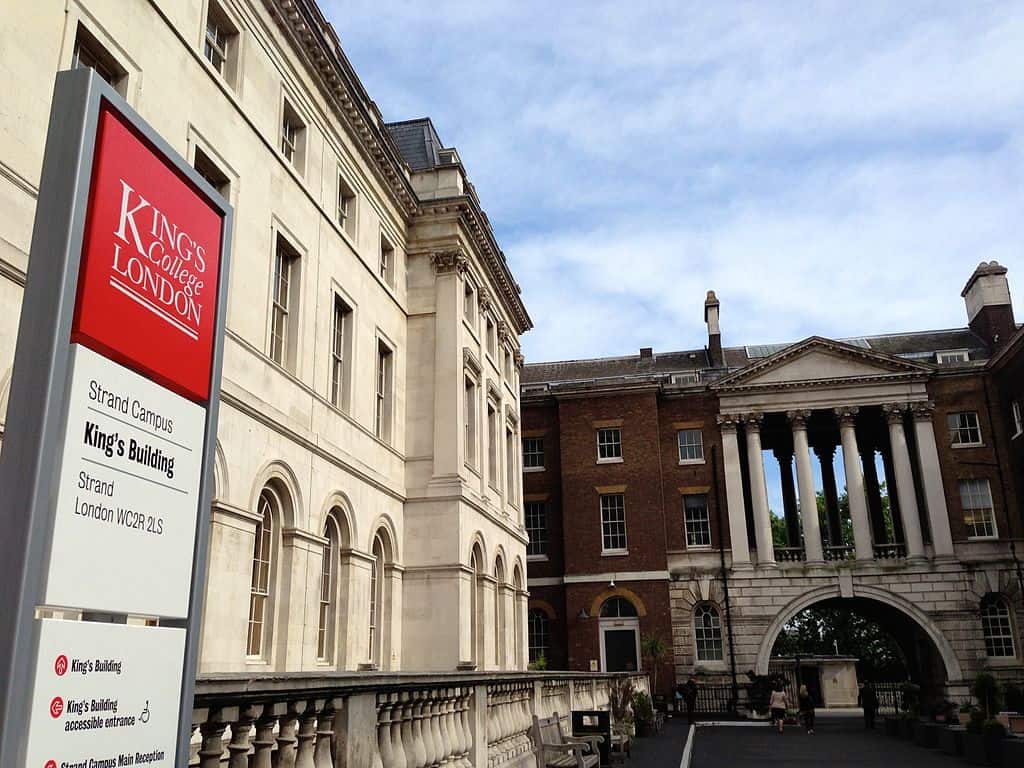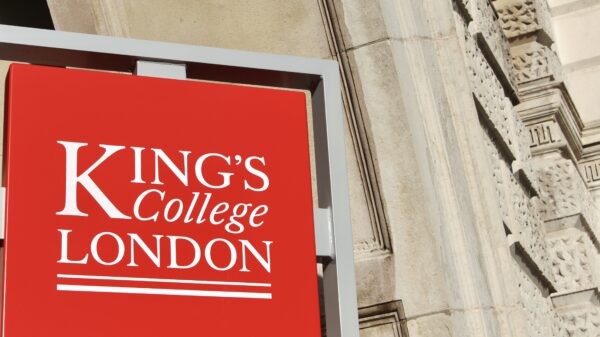On Wednesday, 1 February, King’s College London’s Bush House Auditorium received three different panelists to have a talk about terrorism and radicalisation with a focus on prevention of the spread of extremism.
The panel was hosted by the Centre of Defence Studies, the National Counter Terrorism Advisory Group and the Resilience in Unity Project. It was chaired by Robin Simcox, the Independent Commissioner for Countering Terrorism, and moderated by Dr. Hillary Briffa, a lecturer in National Security Studies in the War Studies Department.
The panel was constructed by Mike Shoesmith, an MA student at King’s College London and actor on countering and preventing terrorism; Ross Paton, former KCL student and Counter-Terrorism Youth Advisory Group Vice Chair; and a former extremist [remaining anonymous], who is now a BA student at Open University.
The event started with a very personal and moving story from Mike Shoesmith. He began by detailing when he himself experienced a terrorist attack. Shoesmith at 18 years old was present during an attack in Borough Market, in central London. The main focus of his speech was an inside perspective of a survivor of violent extremism, bringing a topic which can be very abstract and distant into closer reality with the audience.
Bringing his experiences into the conversation, he told the audience that there is usually a pattern for terrorism survivors: first, a shock stage, then a phase of support and attention from people around you and the media, and finally a divergence stage when the victim either chooses to be an activist on the cause, or simply avoids the topic. Shoesmith emphasized how he, after the attack, could not see any other option but to engage in countering radicalisation.
The former extremist [henceforth referred to as Anon] present in the panel shared his experience with radicalisation. Although almost opposite to Shoesmith’s story, his narrative also brought a closer perspective on a topic which can be difficult to understand from a public perspective.
Anon’s story began with his childhood, when he told us about the radicalisation of his parents after they were exposed to Salafism, an extremist form of Islamic religion. His radicalisation when growing up had much to do with how hatred towards Muslims was portrayed in his house. He experienced social exclusion at school because of his unusual manners of acting which was much later found to be undiagnosed autism, and these feelings were furthered by self-hatred on account of his homosexuality.
Anon told the panel that because of the way he was brought up, his homophobic thoughts towards himself led him to trying to find a ‘solution’ to same sex attraction. When exposed to extremist fundamentalist Islamic doctrine, he believed that being more religious could be the answer. This urge of increasing his religiousness was what brought him to consider being a violent extremist, which he thankfully never did. These thoughts, to this day, haunt him with guilt.
Anon then gave a heartfelt account of his de-radicalisation process. Led by sparks of what he called ‘internal moral compass’, he recounted having realisations of hypocrisies he was living and seeing in his community. He described it as a rational versus emotional internal debate. Anon emphasized the role of scientific explanation of evolution on his de-radicalisation process, and how that helped him see and apply logic against his extremist conspirational thoughts. He highlighted the importance of friendships throughout his experience, describing how friends were the only people he would actually listen to in critical moments.
Ross Paton brought a more technical view of prevention of extremism. Always backing his arguments up with statistics, he evidenced the importance of working with socially deprived groups in pre-criminal stages.
Paton stressed the importance of fulfilling social needs as much as any other basic need. He explained that extremists tend to be seeking for belonging, and the lack of community sense often turn into grievances that are weaponised. Paton then focused on the story of the former extremist present, and how in school he was probably out of place for being autistic, and for being homosexual in an unaccepting community.
Another interesting professional insight which Paton gave was how people who are born in extremist groups- usually cults- have their whole social circle there. That makes the de-radicalisation process harder, since leaving that belief also means leaving your whole family and community. Still, his work mainly focuses on prevention in marginalised groups, and helps to make people belong without seeking to fill that gap with radicalisation.
In the Q&A session, the audience was mainly interested in more details of the panelists’ personal experiences, and in how ordinary actions can help or worsen radicalisation. The topic most touched on was Islamophobia, how it affects Muslim extremism, how to have a dialogue about violent extremism while acknowledging and respecting the other ramifications of religion, as well as how to prevent extremism from the inside of that community.
The panel brought together a range of experiences: Mike Shoesmith’s perspective of someone who had experienced a terrorist attack contrasted with the point of view of someone who had experienced radicalisation and extremism themselves. With that, a more technical view on the issue brought by Ross Paton. With the whole auditorium mesmerised and in complete silence hearing these experiences, it was a captivating testimony to the power of dialogue on this sensitive topic.



















